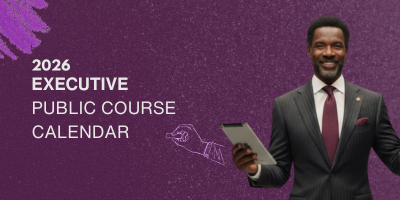African governments are under increasing pressure to deliver efficient, transparent, and accountable public services. Citizens, investors, and international partners expect results that reflect integrity and responsible management of public resources. Policies and frameworks establish the rules, but ethical leadership is only realized when civil servants and government leaders have the knowledge, skills, and practical tools to apply these rules effectively. This is where capacity building becomes indispensable.
Ethical Leadership and Resource Management
Ethical leadership is closely connected to responsible resource management. Public resources including budgets, infrastructure, human capital, and natural assets must be allocated and utilized in ways that maximize public value and minimize waste or misuse. Leaders who lack the skills to manage resources effectively risk inefficiency, corruption, and a decline in public trust, regardless of the strength of governance policies.
Capacity building equips government leaders with practical skills to make ethical, data-driven decisions. Through structured learning programs, civil servants can:
- Prioritize projects based on social impact, strategic importance, and budget constraints.
- Implement transparent procurement practices to prevent misuse of public funds.
- Use performance indicators and audits to track the utilization of public resources.
- Navigate conflicts of interest while ensuring fair distribution of resources.
Learning Solutions as the Engine of Integrity
Learning solutions transform abstract ethical principles into actionable skills. Structured training, leadership modules, mentorship programs, and digital learning platforms enable civil servants to internalize ethical values and apply them in day-to-day decision-making. By combining theory with practical exercises in budgeting, resource allocation, and project management, learning initiatives ensure that ethical governance is operational rather than aspirational.
Building Institutional Resilience
Capacity building also strengthens institutions, ensuring ethical leadership is not dependent on individual leaders. Knowledge transfer, succession planning, and continuous learning systems help embed integrity and accountability across all levels of government. This approach reduces risks associated with turnover, political changes, or evolving socio-economic challenges and fosters a culture where ethical behavior, transparency, and responsible resource management are standard practice.
Practical Steps for African MDAs
To implement capacity building effectively, African MDAs can adopt the following strategies:
- Integrate ethics and resource management modules into civil service training programs, focusing on budgeting, procurement, and asset stewardship.
- Establish mentorship networks where experienced leaders guide emerging officials in ethical decision-making and responsible resource use.
- Leverage digital tools to monitor learning outcomes, track project performance, and ensure compliance with governance standards.
- Conduct regular evaluations of training programs to ensure alignment with emerging governance challenges and resource management needs.
- Promote a culture of continuous learning where lessons from project implementation and citizen feedback inform future policies and operational decisions.
Conclusion
Capacity building is the bridge between ethical intent and tangible outcomes. By equipping African public sector leaders with the knowledge and skills to manage resources responsibly, governments can strengthen integrity, improve public trust, and deliver better results for citizens. Ethical governance and effective resource management are inseparable, with each reinforcing the other. Investing in learning solutions is not only a development strategy but a practical imperative for building sustainable, accountable, and resourceful public institutions across Africa. Strong capacity building programs today ensure that Africa’s governments are prepared to meet the challenges of tomorrow with integrity, efficiency, and resilience.












